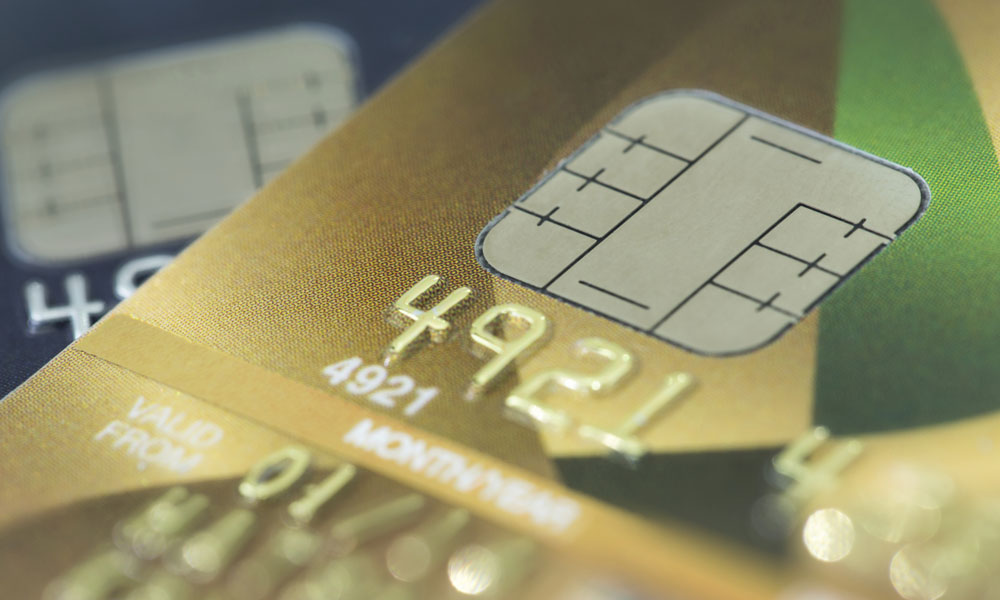
Retail Group: Delay Launch of Upgraded Payment Systems
In the latest skirmish in the retail-versus-banking battle over payment system security, a recent letter by the Food Marketing Institute says the deadline to implement the upgrade is too tight. A group representing credit unions is pushing back, while another retail group says any delays in implementation will be the fault of the banking industry.
The retail industry has not been afraid to tackle updates to payment systems, but things may be moving a little too fast for some merchants.
Last month, the Food Marketing Institute (FMI) sent a letter to the four major credit card companies—Visa, MasterCard, American Express, and Discover—saying its members won’t be ready to switch to accepting chip-and-PIN cards by October and asking for a delay until 2016. If they fail to make the move by October, retail outlets could be on the hook for costs of returns or disputed charges.
“Regardless of how strong the commitment or how many dollars invested, the reality is that the system will not be ready to meet the card networks’ arbitrarily-set mandate for the liability shift in October 2015,” the group’s president and CEO, Leslie Sarasin, said in the letter.
FMI’s stance appears to go against other retail groups, such as the Retail Industry Leaders Association (RILA), which has generally supported a speedy approach to upgrading the system. RILA told The Huffington Post it doesn’t agree with FMI’s request.
Part of the reason for that is that the letter could help RILA’s opposition. FMI’s letter, which was forwarded to Congressional leaders [PDF] by the National Association of Federal Credit Unions (NAFCU), suggests that FMI is concerned about the “the customer and cashier confusion at the register” that the rollout, just before the peak holiday shopping season, could create. FMI also noted that the change could lead “to a consumer having two cards issued from the same bank—one PIN-enabled and one requiring a signature.”
NAFCU, a trade group on the other side of the chip-and-PIN debate, said FMI’s letter highlighted the need to regulate retailers under the same standards that the financial industry has to face.
“FMI is more concerned about the cost of complying with the [Europay, MasterCard, Visa] standards and how quickly they can process transaction than it is about consumers,” NAFCU CEO Dan Berger wrote in a letter of his own.
Great Divides
In recent years, the RILA has become a leading advocate for making the transition to the updated technology. In comments to The Huffington Post, RILA Vice President of Communications and Advocacy Jason Brewer suggested that it wasn’t the retail industry delaying the switchover process, but the banking industry, which Berger noted is pushing an alternative technology called chip-and-signature.
“Contrary to the statement made by Mr. Berger, retailers are spending billions to upgrade terminals to prepare for chip cards, while the banks and credit unions seem willing to roll out a system that is inferior to the one they already use in Europe and Canada to protect consumers,” Brewer said. “Our position is very simple. Chip-and-PIN has been proven to be the most successful in reducing fraud, so why roll out anything less for American consumers?”
In emailed comments to Associations Now, Brewer noted that retailers have invested $8.65 billion to upgrade payment terminals ahead of the October 1 deadline.
“NAFCU and others in the financial services industry have yet to adequately explain why they refuse to use readily available and proven technology to safeguard American consumers,” Brewer wrote in the email. “Retailers want the best possible solution to mitigate fraud and cyber theft, not one that only goes half way and still leaves consumers vulnerable.”
(iStock/Thinkstock)






Comments